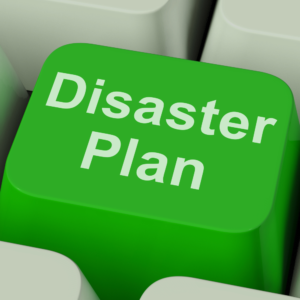Disasters, whether natural or man-made, can strike businesses at any time, often with little warning. The impact of such events can range from minor interruptions to catastrophic losses. In today’s interconnected world, the ability to quickly recover from a disaster and maintain business operations is not just desirable – it’s essential. This is where the expertise of a consultant specialized in disaster recovery (DR) and business continuity (BC) becomes invaluable.
Understanding the Stakes
Before delving into the role of a consultant, it’s important to understand the stakes involved in DR and BC. A disaster can lead to operational downtime, data loss, financial damage, and a tarnished reputation. Business continuity planning aims to provide a framework for building organizational resilience and the capability for an effective response that safeguards the interests of its key stakeholders, reputation, brand, and value-creating activities.
The Consultant’s Expertise
Consultants in the field of DR and BC are specialists who bring a wealth of knowledge and experience to the table. They understand the nuances of risk assessment, business impact analysis, and the development of strategies and plans that can be swiftly executed in the event of a disaster. Their expertise includes:
- Risk Evaluation: Identifying potential threats and vulnerabilities that could impact business operations.
- Business Impact Analysis: Assessing the effects of an interruption to business functions and processes.
- Strategy Development: Crafting strategies that align with the organization’s risk tolerance and recovery objectives.
- Plan Design and Implementation: Developing comprehensive DR and BC plans and ensuring their implementation.
- Training and Testing: Educating staff on their roles during a disaster and conducting drills to test the effectiveness of the plans.
The Consultant’s Role in Disaster Recovery
A consultant’s role is multifaceted and can be tailored to the needs of the business. Below are some of the key functions a consultant may perform:
Assessment and Planning
A consultant begins by conducting a thorough assessment of the current state of an organization’s DR and BC plans. If such plans are non-existent, the consultant will work with the organization to understand critical processes and systems. This phase involves identifying and prioritizing the resources required to keep the business running during and after a disaster.
Strategy Formulation
Based on the assessment, the consultant will help the organization develop a tailored strategy. This strategy will include identifying the most appropriate recovery sites, establishing data backup procedures, and determining the necessary technology and resources to support recovery efforts.
Plan Development of Disaster Recovery
With a strategy in place, the consultant assists in developing a detailed DR and BC plan. This plan outlines the steps the organization must take before, during, and after a disaster to maintain operations and minimize loss.
Training and Awareness
A plan is only as good as the people who execute it. Consultants often lead training sessions to ensure that all employees understand their roles and responsibilities in the event of a disaster. They also help foster a culture of preparedness within the organization.
Testing and Maintenance
Regular testing of the DR and BC plan is essential to ensure its effectiveness. Consultants can design exercises to simulate various disaster scenarios and work with the organization to evaluate and refine the plan as needed. They also ensure that the plan remains up-to-date with any changes in the business environment or technology.
Disaster Recovery: Post-Disaster Support
In the unfortunate event of a disaster, consultants can provide on-the-ground support to help manage the response and recovery efforts. They can also assist in the post-incident review to identify lessons learned and improve future preparedness.
Conclusion
The role of a consultant in disaster recovery and business continuity is critical. They provide the expertise and guidance needed to prepare for, respond to, and recover from disruptive incidents. By partnering with a consultant, organizations can enhance their resilience, protect their assets, and ensure that they can continue to operate and serve their customers even in the face of disaster. The value of such preparedness cannot be overstated, as it not only safeguards the business but also contributes to the confidence of customers, investors, and stakeholders.

